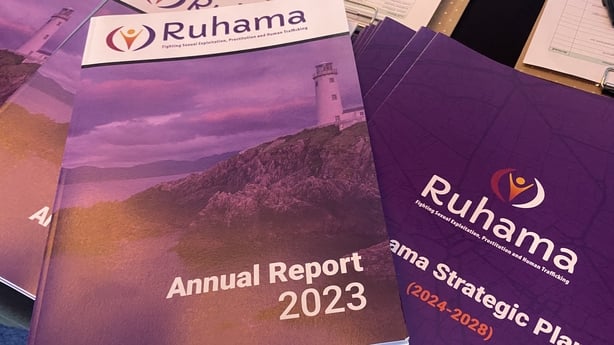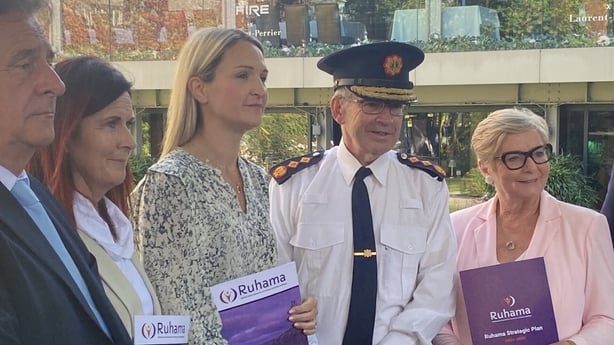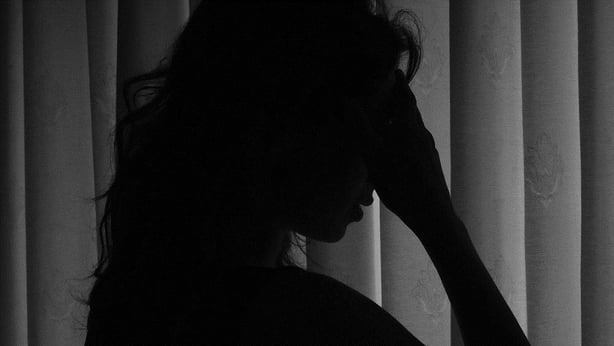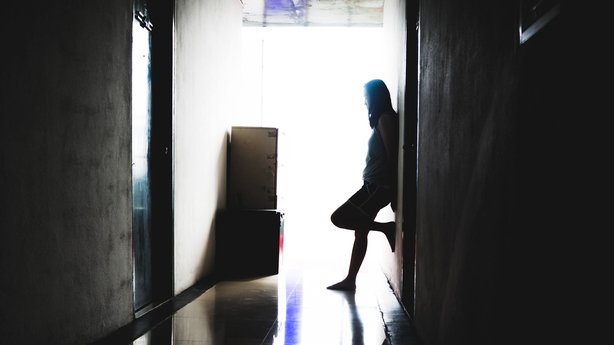Ruhama has said it supported 30% more women impacted by prostitution and human trafficking for sexual exploitation last year than in the previous year.
The charity works with women affected by prostitution and other forms of commercial sexual exploitation in Ireland.
In its annual report for 2023, it found a 29% increase in the number of new victims of human trafficking for sexual exploitation.
Ruhama said 108 people accessed its trauma and counselling service last year, which represented a 32% rise on 2022.
A total of 307 individuals engaged with Ruhama's Casework team based in Dublin, Co Limerick and the midlands, the report said.

The charity also launched its strategic plan for the next five years to address this growing demand for its services.
The plan outlines the charity's aim to "further expand the geographical reach of its services over the next five years".
Ruhama CEO Barbara Condon said the charity recently expanded into Co Cork and Co Kerry, and now wants to offer supports in the northwest and northwest of the country.
She said a campaign would soon be launched to highlight to the public the link between pornography, human trafficking and the sexual exploitation of women.
The chief executive said more needs to be done to "prevent sexual exploitation and protect women and girls from sexual violence".
"We need more awareness of the issues that drive women into prostitution," she said.
"We need to do more to challenge male entitlement and the demand by men choosing to illegally pay for sexual acts," she added.
Ms Condon said that "women have lived it and they carry it with them every day", adding that many exploited women did not have addresses or bank accounts.
Ms Condon said such women felt they could not come forward due to the perceived shame and stigma.
She said the charity had dealt with 51 nationalities last year and that exploitation was happening in towns and cities all across Ireland.

Ms Condon said the charity is witnessing the "daily the impact of sexual violence and sexual exploitation from which recovery is lifelong".
The report's launch was attended by Minister for Justice Helen McEntee and Garda Commissioner Drew Harris.
Ms McEntee said the work of Ruhama highlights "the vital importance of their support services and the transformative impact they can have on real lives".
She said: "The staff, the volunteers in working with women who are trafficked, who are forced into the sex trade, many whom's lives are devastated.
"Essentially, they go through unbelievable trauma and what Ruhama provides is hope, is a future."
She said she was proud as minister to be able to support them.
The minister said: "While this report shows an increase in the number of women that they've helped last year on the year before, it's just the tip of the iceberg.
"What we all want, is to make sure that any woman who is in this vulnerable position, that she can come forward, that she knows that that help is there, that we work closely with the gardaí and that through legislation, through policy, through supporting organisations like Ruhama, that we can protect as many women as possible, can give them hope."
Former Fine Gael MEP Frances Fitzgerald, who has been announced as the new Charity Ambassador with Ruhama, said it was "important" to raise awareness about the reality of sexual exploitation and its impact on women.
'Helpless and defenceless'
A woman, who was helped by the charity Ruhama, told an audience of those gathered for the launch of its annual report that she had been left "voiceless, helpless and defenceless" after she was raped, having been brought to Ireland against her will.
Speaking on the condition of anonymity she said her rights as a woman had been "violated in the most inappropriate way".
The woman said that before receiving help from Ruhama, she felt she had lost her reason to live and had suffered from anxiety, nightmares, flashbacks and ongoing hyper-vigilance.

She said the support she received from the charity had been part of the healing process and she realised "my experience does not determine my identity or my future".
She said her case worker had listened to her in a non-judgmental way and had invited her out for coffee on her birthday a few years ago, at a point where she had been feeling particularly low.
The woman added she was able to move away from focusing on her weakness and her challenges to looking at her strengths.
She now works in social care where she feels her work can have a meaningful impact.
She said her past experiences had helped her to "show empathy and advocate for women and support people in need".
She expressed gratitude to the people of Ireland.
"It has given me a sense of purpose to give back to the community that has embraced me," she said.
The woman said Ruhama had been a lifeline and had taught her that "tragedy can be a source of strength".
"I have found my voice and the strength to use it," she said.
'500 identified as victims of human trafficking'
The launch of Ruhama's report follows the publication of a separate report from the Irish Human Rights and Equality Commission that found there were 53 victims of human trafficking, including five children, officially identified in Ireland last year.
The IHREC's Trafficking in Human Beings in Ireland 2023 report, which was published yesterday, found overall more than 500 people were identified as victims of human trafficking in Ireland over the last decade.

Multi-annual data from the National Referral Mechanism that identifies and assists victims, found trafficking for sexual exploitation remained one of the most prevalent forms at around 55% of all identified cases, followed by trafficking for labour exploitation at 38% and for criminal activities.
More women than men are trafficked and almost all were identified as being from a migrant background.
Africa and the European Economic Area and to a lesser extent Asia, Latin America and other areas of Europe were identified as the main regions for the origin of victims.
The total number of victims trafficked in 2023 represented a 20% increase from 2021, the report said.
No child victims of trafficking were identified in 2020 or in 2021, but five children were identified in 2022 and again last year.
The report said eight were girls and two were boys, with the majority having been brought to Ireland with the purpose of sexual exploitation.
The IHREC said the data showed that prostitution is a high-risk environment for sexual exploitation in Ireland, whilst the EU has also identified escort agencies, the pornography industry, massage parlours, bars and nightclubs as potentially high-risk environments.
The commission welcomed the publication of the Criminal Law (Sexual Offences and Human Trafficking) Bill 2023.
It said the bill could help trigger assistance to victims early as well as providing provisions for those with reduced capacity to consent, including children.
We need your consent to load this rte-player contentWe use rte-player to manage extra content that can set cookies on your device and collect data about your activity. Please review their details and accept them to load the content.Manage Preferences
Additional reporting Eleanor Burnhill

